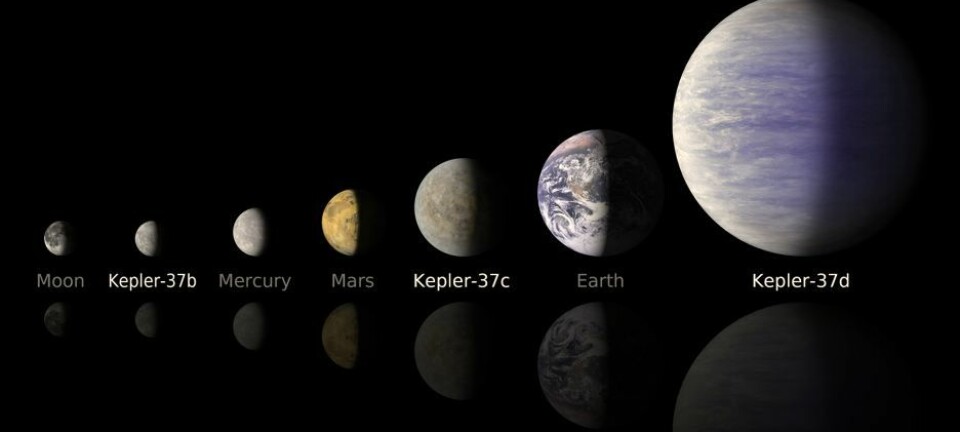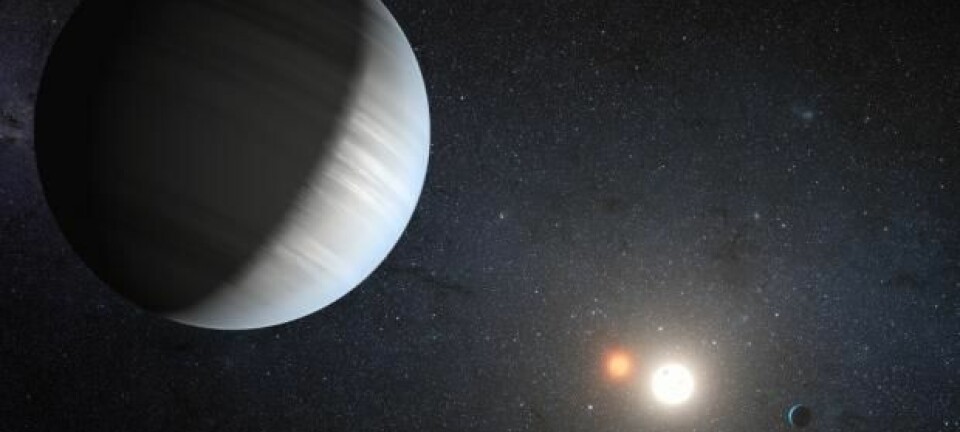
Research centre working on recipe for habitable planet
Danish scientists are trying to develop a ’recipe’ for habitable planets. They hope to be able to predict where in our galaxy we should look for potentially habitable planets. The odds of finding life on other planets are extremely high, they say.
The Centre for Star and Planet Formation (STARPLAN) has had some sensational results in its first five years. The next objective is to find the recipe for how a solar system with Earth-like planets is formed.
The centre highlights its special, interdisciplinary approach to research, and the ambitions are high:
“Unique circumstances are required in order for the evolution of solar systems with Earth-like, habitable planets to occur,” says Professor Martin Bizzarro, the director of STARPLAN.
Cosmochemists meet astronomers and astrophysicists
The centre aims to investigate the origin of our solar system with a special emphasis on interdisciplinary research. Here, cosmochemists, astronomers and astrophysicists work together to solve the mystery of how the world came into being.
Our findings suggest that the formation of planets like the Earth is independent of the conditions in our solar system. This is a natural process that occurs constantly. And since we are finding planets around most stars in the galaxy, the odds of finding life elsewhere are extremely high.
”When we put all these people together, we end up with a unique research environment where we can approach a topic with a variety of techniques,” says Bizzarro.
Ambitions turned up in search for habitable planets
This has so far led to numerous sensational findings, which challenge previous assumptions of what is required for an Earth-like, habitable planet to be formed.
“Our findings suggest that the formation of planets like the Earth is independent of the conditions in our solar system. This is a natural process that occurs constantly. And since we are finding planets around most stars in the galaxy, the odds of finding life elsewhere are extremely high.”
The deeper understanding of planet formation that the centre has acquired in its first five years makes it possible to raise the ambitions:
“Over the next five years, we will be seeking to find the recipe for solar systems with conditions that can lead to life. This will enable us to predict where in the galaxy we should look for potentially habitable planets,” says the professor.
Scientists speak different languages
The layperson could easily have the mistaken belief that since scientists are used to high levels of abstraction, it is easy for them to understand one another, regardless of the differences in research interests.
But when the research is based on widely different methods and knowledge, this can be a great challenge. With this in mind, STARPLAN has worked diligently to establish the required synergy:
“It has taken the best part of two years to get the different research groups to understand one another’s language.”
PhD students supervises the senior researcher
One of the successful initiatives to promote the cooperation is a ‘journal club’ where the researchers are encouraged to disseminate articles on subjects that are different from their own research interests.
An example is an astrophysicist presenting an article on cosmochemistry, i.e. a person who does not know much about the methodology of chemistry trying to explain how a meteorite is analysed.
”The researcher is assigned a supervisor, for instance a student, who can give the researcher a crash course in the subject, and then the researcher presents the article to the rest of the centre’s researchers. We do this every two weeks,” says Bizzarro who, as a cosmochemist, has tried to present articles on astronomy.
This not only leads to a deeper understanding of one another’s research interests; it also creates a dynamic between senior researchers and PhD students, he says.
“Our initiatives work really well, and over the next five years there will be less of a need to convince people of the importance of working across academic disciplines. They already understand this importance.”
----------------------
Read the Danish version of this article at videnskab.dk









